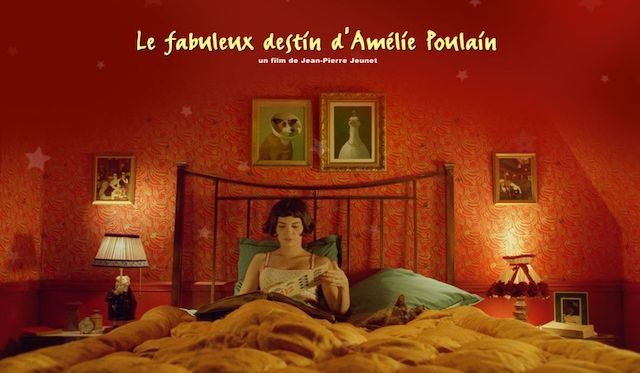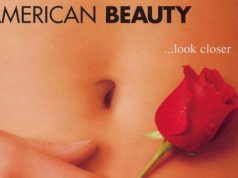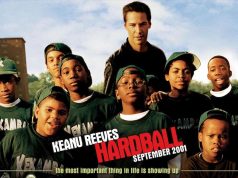
For a span of several months at the end of 2001 and the beginning of 2002, the world was split into two camps: those who found “Amelie” utterly delightful, whimsical, pleasant, and enchanting; and those who were dead inside.
That was pretty much how the lines were drawn. The French art-house confection was America’s third highest-grossing foreign film up to that time; it was hugely popular with audiences, including those who didn’t usually go to the kinds of theaters that played subtitled movies. Critics loved it, too: 89% positive at Rotten Tomatoes.
If you already knew that it was a box-office hit, it’s not surprising to learn that it was also critically adored. Foreign films are the rare niche where critics actually make a difference: people don’t see subtitled movies in numbers that large unless they’ve been peppered with rave reviews. (The same does not hold true for wide-release American films, obviously.) But if you didn’t know anything else about it, you might be astonished to hear that so many critics had gushed about “Amelie,” because critics have a reputation for being curmudgeons who despise merriment. How was “Amelie” able to break through their defenses? It must have been PRETTY DAMNED CHARMING.
I sure thought so! Ten percent of my colleagues were naysayers, but I was not among them. In fact, I probably joined the rest of the world in suspecting there was something wrong with anyone who could fail to at least like the movie. And to flat-out hate it? Who could hate such a cheerful movie?!
What I said then:
“‘Amelie’ is a sunshiny movie that makes sunshininess seem cool. It’s ‘Pollyanna,’ but without the factor of making you want to smack the protagonist…. Audrey Tautou couldn’t be more impish, beguiling and innocently coquettish if she were part fairy. No matter what else she does with her career, she will always be Amelie in the minds of millions. [Director Jean-Pierre] Jeunet maintains a playful, optimistic tone, allowing some conflict to creep in only momentarily. When it does, it becomes clear just how much the movie’s whimsy has captured you, as you realize it’s impossible to feel any suspense. A movie like this can only end Happily Ever After.” Grade: A- [complete review]
The re-viewing:
I didn’t examine the negative reviews until now, for this column, but I’m intrigued by the running themes that connect them. The chief complaint, stated or implied by every detractor, is that the movie thrusts its whimsy upon us too vigorously, and as a result feels forced, fake, and hollow. A sampling:
“Features an aggressive, in-your-face romanticism that’s noticeably lacking in genuine warmth.” — Kenneth Turan, Los Angeles Times.
“It’s hard to be charmed … when you’re so conscious of how hard the filmmakers are working to make it charming.” — Charles Taylor, Salon.
“Afflicted with the terminal cutes.” — Harvey S. Kartan, Compuserve.
“A frenetic bore that insists on its audience’s adoration while making no demands upon their intelligence.” — Manohla Dargis, L.A. Weekly.
“Meant to be postcard-perfect, it rings false.” — Jeremiah Kipp, Matinee Magazine.
“It’s not every day that you see a film so enamored with its own quirkiness.” — Eugene Novikov, Film Blather.
“It is overwritten and overdirected for the quaint, simple feelings it attempts to project.” — Andrew Sarris, New York Observer.
I recognize these complaints. I’ve said the same thing about other films: “Eagle vs Shark,” “Running with Scissors,” “Jennifer’s Body,” “Kinky Boots,” “The Wackness,” “Bottle Shock,” “Miss Potter.” Now I was curious, even a little concerned. Might a second viewing of “Amelie” produce the same reaction in me that it did in ten percent of my colleagues ten years ago?
As it turns out, no. While the movie’s magic felt somewhat less potent this time, that’s only because I’ve seen the same magic used so often in other movies. A rabbit being pulled from a hat is less dazzling the hundredth time you see it than it was the first twenty times. But it’s always neat.
I was struck by Amelie’s motivation: “A surge of love, an urge to help mankind, came over her,” says the narrator. Unstated is the fact that nearly everyone else in the movie likewise interferes with other people’s lives, generally to make them better. Such altruism never fails to warm my heart, even in fictional characters, even in a movie specifically crafted for the purpose of warming my heart. And it’s done so stylishly here, with what feels like genuine whimsy, that I don’t feel manipulated.
I can see how Jeunet’s style of whimsy would feel forced and overdone to some people. I make no judgments against such people, nor against the blackness of their souls. Like I said, I’ve certainly felt that way about other movies. And if Amelie‘s whimsy doesn’t work for you, it makes complete sense that you’d find the movie boring: strictly speaking, it doesn’t have much of a plot, or a point.
But it works for me…
Do I still love this movie?
“Love” might be a strong term, but I do like it a lot. It’s superbly shiny and upbeat, with simple characters who have big personalities — like a fairy tale for grown-ups. As such, there isn’t much emotional depth to it, which is probably why it doesn’t resonate as a classic to me. As cotton candy goes, though, it’s the gourmet stuff. Grade: B+
— Film.com




